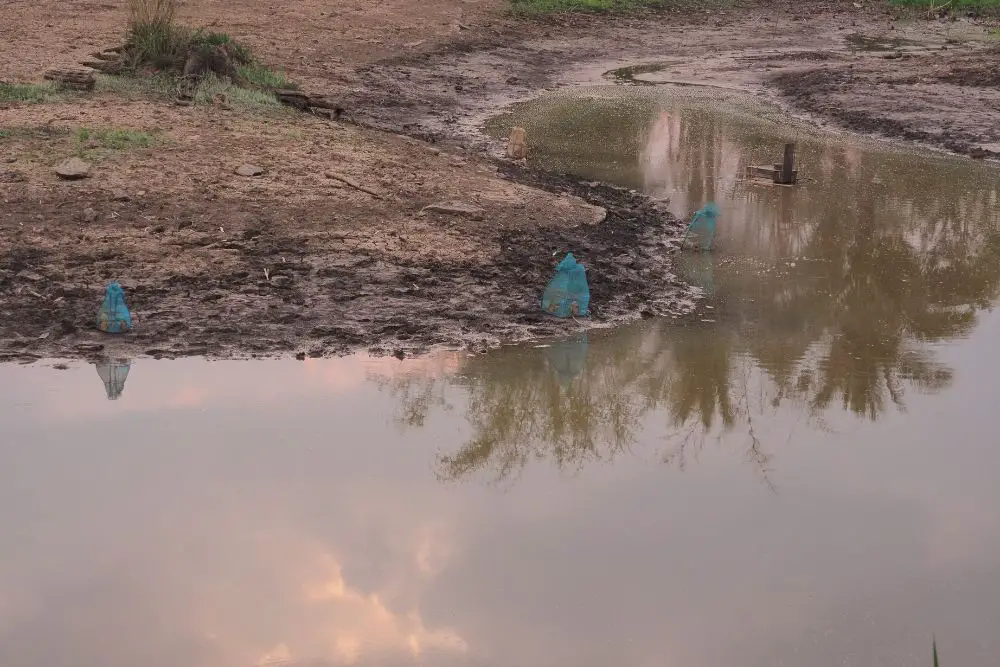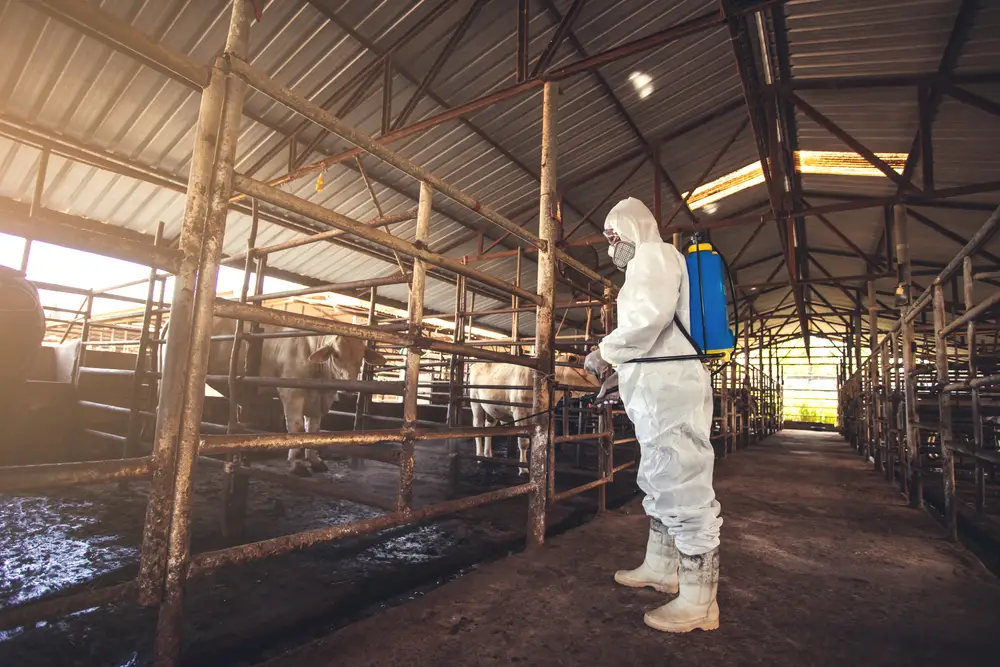There are only two ways to keep mosquitos away from your cattle. Firstly, control static water sources such as ponds and streams, and secondly, use topical sprays such as DEET and Neem oil which are quite effective at reducing bites.
Mosquitoes are the world’s number one carrier of some of the deadliest pathogens known to humans and livestock, resulting in the deaths of around 725,000 people annually, and untold numbers of cattle.
Mosquito swarms cause stress in cattle, which affects not just their physical and mental health, but the quality and quantity of their milk. Controlling their numbers is important to keep any mosquito-borne diseases from establishing a foothold. Some mosquito-transmitted viruses can cause encephalitis in horses.
Spraying, repellents, water management, and mosquito control, especially of larvae, are all essential for properly controlling these incredibly-adaptable insects.
Table of Contents
Reduce Water Sources Around The Farm
Mosquitoes cannot survive without water. While they don’t live in water, females lay their eggs in stagnant pools and generally stay away from running water.
Ponds or lakes, fortunately, attract mosquito predators like insects, fish, or birds. Attracting certain wildlife to bodies of water on your land, or simply stocking your ponds with certain fish species, can be a cost-effective mosquito control method.
Mosquitos thrive in farmland areas because there tends to be so much standing water in ditches, waterlogged fields, clogged gutters, and cattle troughs. Freshly-formed standing water only needs about five days before it reaches a point when it is attractive to adult mosquitos.

They’re not just drawn to more extensive areas of water, but also smaller pools that accumulate in man-made items like cracked pipes, discarded tires, and buckets. These items create ideal places for female mosquitos to lay eggs.
Due to the sheer size of some farms, it is impractical to find every area of mosquito-friendly water. However, it may be worth updating your irrigation techniques to maximize the removal of groundwater from your property.
Use Cattle-Specific Topical Sprays
Most official anti-mosquito products for cattle application are products that you pour as opposed to spray. They usually contain a synthetic pyrethroid, but topical aerosol spray repellents containing citronella and pyrethrin are also available.
Products that reduce mosquitoes on cattle are based primarily on repellent compounds deterring the disease-carrying insects from biting. N, N-diethyl-3-methylbenzamide (DEET) is the benchmark for all repellents.
The U.S. Department of Agriculture developed DEET for general public use in 1957. Since then, no other chemical product on the market has the protection duration and efficacy of DEET, even after empirical testing of over 20,000 different compounds.

Oil of lemon eucalyptus and picaridin are two recent releases that are almost as effective as DEET. Aerial spraying of farms and ranches does work, although the noise of the cropduster or helicopter typically scares away cattle.
Neem oil is less effective but is the most natural solution and is best for those on a budget. Apply it to floors and walls sparingly in barns several times per week. Don’t forget to wash the cattle as well.
Prepare For Post-flood Swarms
Hurricane Laura hit Louisiana in August of 2020 and caused an explosion in the mosquito population. Unsurprisingly, this was due to the vast amounts of standing water that the storm left after striking the mainland.
Cows, horses, and deer were particularly badly affected by the resulting swarms of mosquitoes.
Dr. Craig Fontenot, a large-animal veterinarian based in Ville Platte, explained how about a week after the hurricane made landfall, clouds of mosquitoes swarmed across farming land, engulfing livestock and leaving them weakened, lifeless and exhausted.
He stated that many were left suffering from acute blood loss and consequent oxygen starvation before collapsing and dying, summarized with this statement: “They’re vicious little suckers!”
Varieties of Mosquitos and Diseases
Aedes comprises a large genus of mosquitoes that includes vectors of diseases such as yellow fever and dengue. Anopheles is a genus of mosquito common in warmer climates and consists of mosquitoes that transmit malarial parasites to humans.
Rift Valley fever (RVF) is an arthropod-borne virus affecting domestic livestock like cattle, sheep, goats, and even buffalo and camels. Mosquitos are the principal carriers and transmitters of this virus.
The RVF virus is generally found in Kenya and other regions of eastern Africa. It is also present throughout most of sub-Saharan Africa and some Persian Gulf countries.
FAQs
How far can mosquitos spread on a farm
Mosquito larvae can fly around a mile, so neighboring properties may have still bodies of water. In addition, unused pools and rainwater tanks will accumulate rainwater and should be drained, cleaned, and covered.
Why do mosquitoes feed on cows?
Female mosquitoes require blood to develop their eggs before laying. Cows are generally slow-moving while grazing, making them an easy target. Males don’t suck blood and subsequently, won’t bite animals or humans.
Which state has the most mosquitoes?
Texas has the highest number of species with 85, while West Virginia has only 26. Calculating accurate mosquito populations is almost impossible as their numbers depend on breeding environments, hosts, and meteorological conditions.
Dry states such as the south-western ones can have high numbers in isolated areas with abundant standing water. Mosquitoes are prevalent in regions with paddy fields, dredge spoil or salt marsh.
